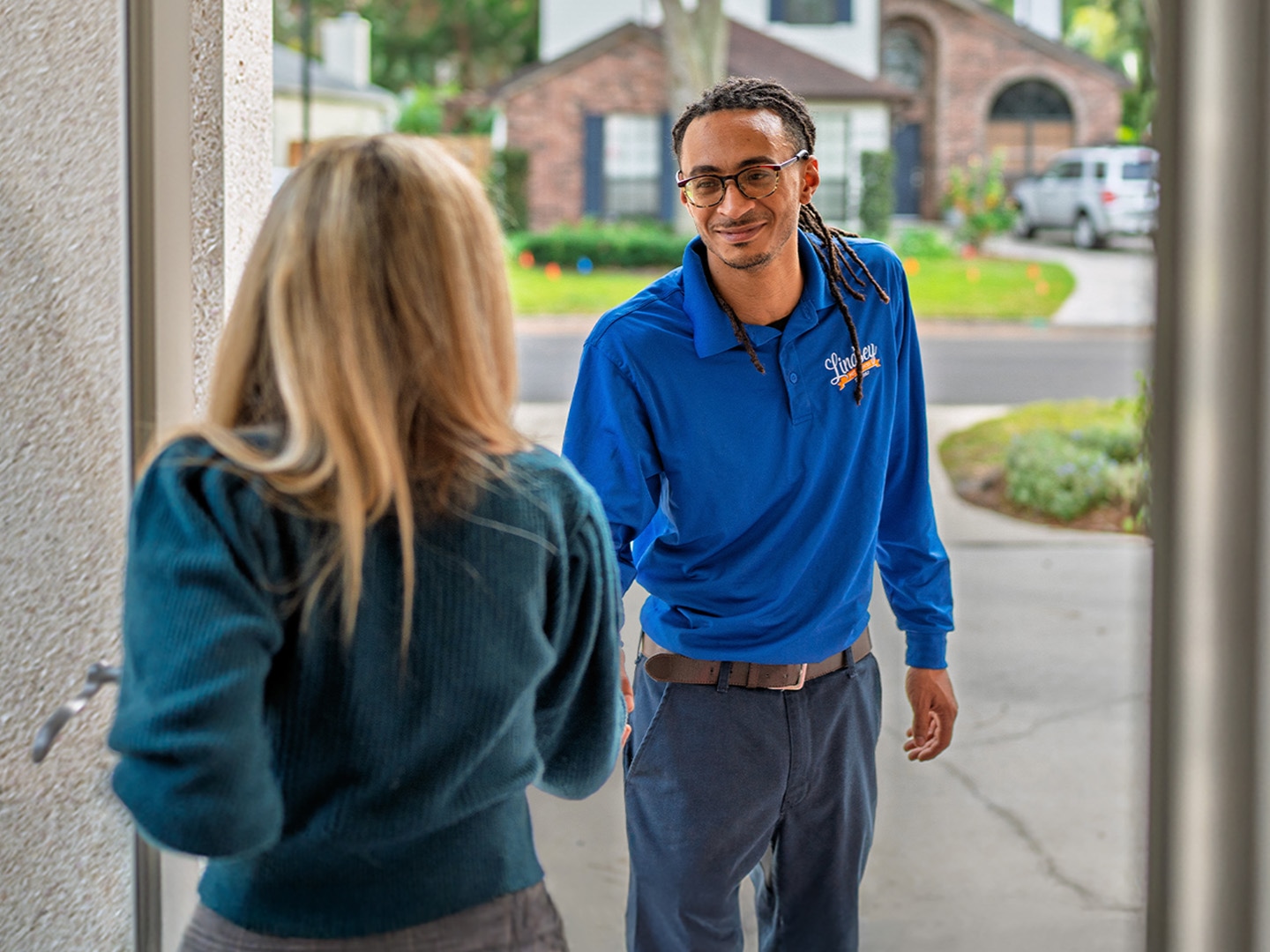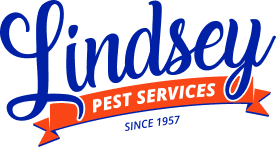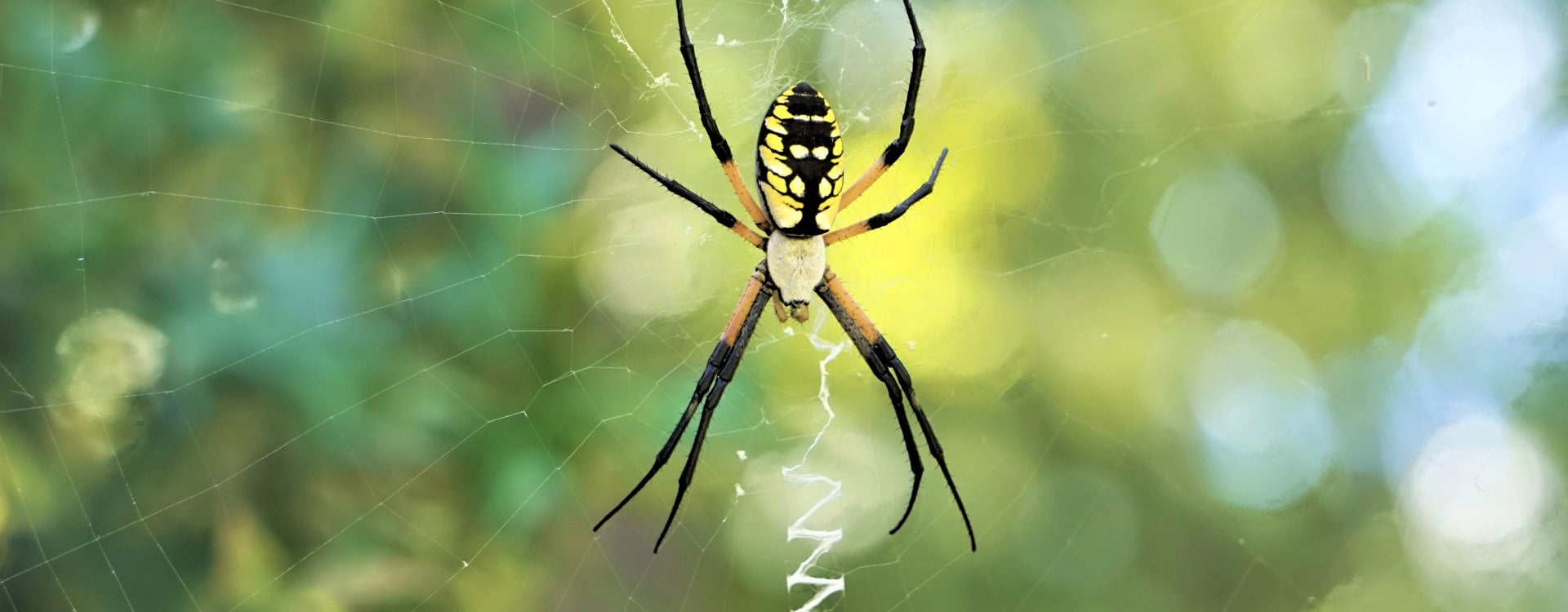Common Spiders in Jacksonville, FL
Jacksonville's warm, humid weather and lush coastal landscape create a perfect home for spiders. These eight-legged arachnids thrive year-round, especially in neighborhoods with gardens, trees, and plenty of insects to feed on.
While most spiders are harmless and even helpful for keeping bug populations in check, it's smart to know which species you might encounter in and around your home. Below, we’ll help you identify some of the most common spiders in Jacksonville and across the First Coast.
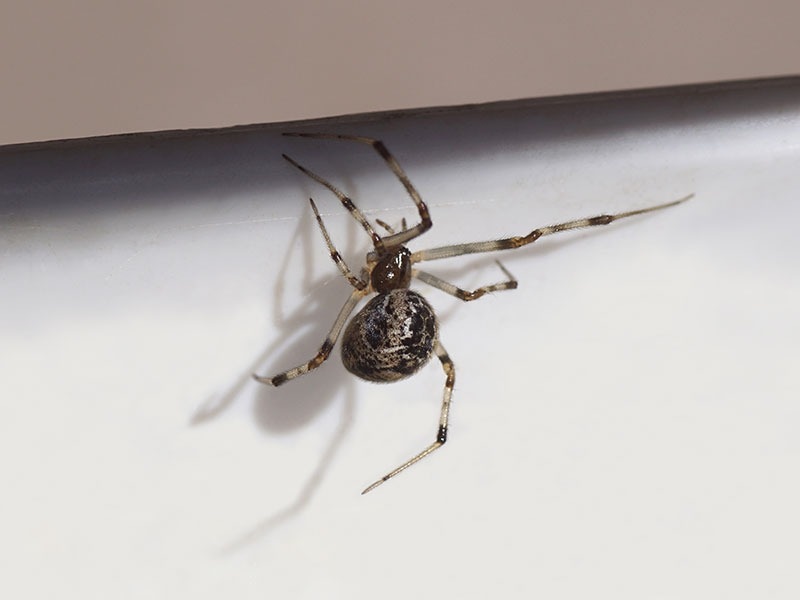
Common House Spider
Identification: The common house spider (Parasteatoda tepidariorum) is small, typically less than half an inch long, with a round abdomen that's yellowish-brown or tan and covered in darker markings. Females are larger than males and often mistaken for young brown widows or other cobweb spiders.
Where they're found: These spiders are the most frequent indoor web-builders in Jacksonville homes. You'll often see their messy, irregular webs:
- In crawl spaces, garages, attics, or closets
- In window corners, ceiling corners, or behind furniture
- Around porch lights, eaves, and door frames outdoors
Behavior & risks: Common house spiders aren't aggressive and rarely bite. They help control indoor insects like flies, gnats, and mosquitoes. Their webs can accumulate quickly, so regular dusting or vacuuming helps keep them under control.
House spiders often abandon and rebuild their webs in different spots, searching for food.
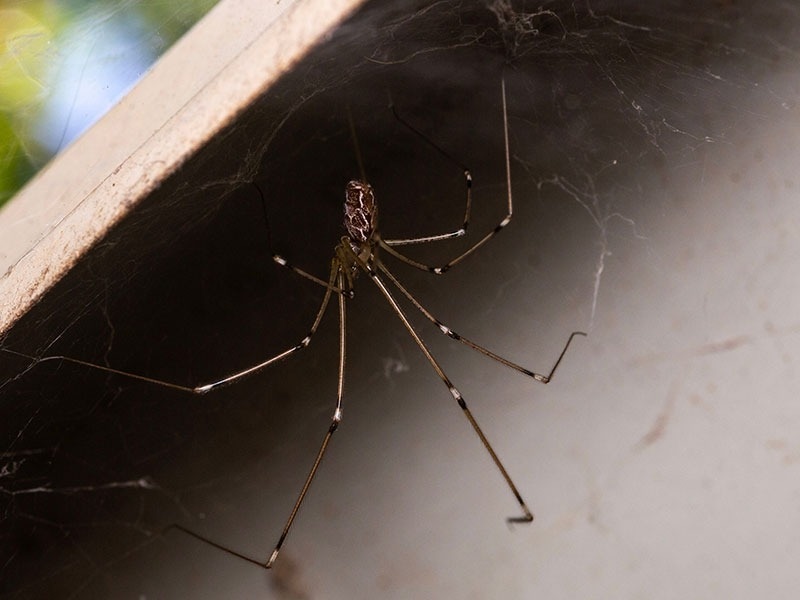
Cellar Spider
Identification: Cellar spiders, often called 'daddy long-legs spiders', have very small bodies, about 1/4 inch long, with extremely long, thin legs. They are pale gray or light brown and sometimes mistaken for other long-legged spiders.
Where they're found:
- Crawl spaces, attics, garages, and closets
- Ceiling corners and window corners
- Porches, covered outdoor areas, and sheds
- Any quiet, undisturbed area with moderate humidity
Behavior & Risks: Cellar spiders are harmless to humans. They build messy, tangled webs that often collect dust. Interestingly, when disturbed, cellar spiders may shake their webs vigorously, a defensive behavior that looks alarming but is completely harmless.
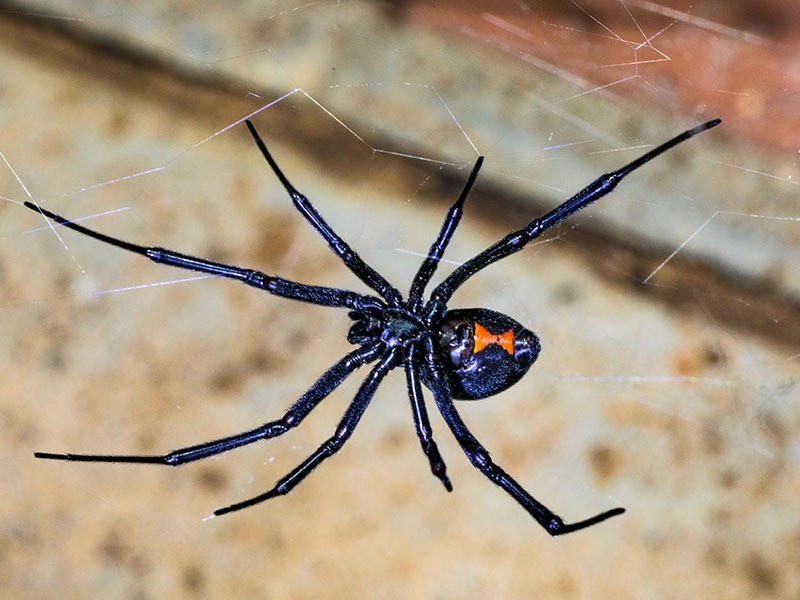
Black Widow Spiders
Identification: Black widow spiders are glossy black with a distinctive red or orange hourglass marking on the underside of the female's abdomen. Males are smaller and lighter in color, sometimes with faint red or white markings.
Where they're found: Black widows prefer dark, quiet areas. Jacksonville homeowners often spot them:
- In garages, crawl spaces, or under porches
- Around firewood stacks or yard clutter
- Inside outdoor furniture, grills, or play equipment
Behavior & risks: They rarely bite unless disturbed, but their venom is potent - up to 15 times stronger than a rattlesnake's. Bites can cause muscle pain, cramps, nausea, and difficulty breathing.
While fatalities are rare, seek immediate medical care if bitten.
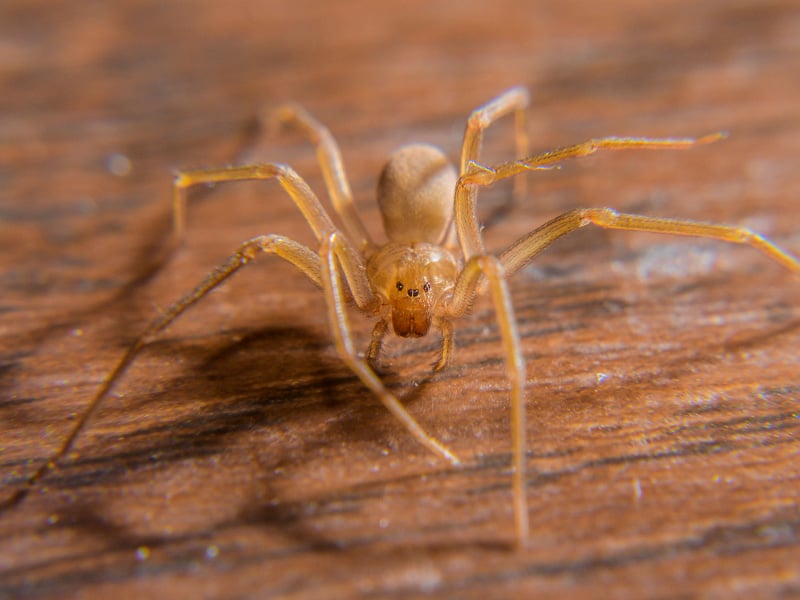
Brown Recluse Spiders
Identification: Light to dark brown with a violin-shaped marking on the back. They have six eyes arranged in pairs (unlike most spiders' eight).
Where they're found: Brown recluse spiders prefer secluded, dry environments such as:
- Attics, closets, and basements
- Behind stored boxes or furniture
- Inside shoes, clothing, or linens left undisturbed
Behavior & risks: Brown recluses are shy but will bite when trapped or threatened. Bites may start mild and worsen over several days, sometimes leading to skin ulceration or necrosis. Medical treatment is strongly advised.
While brown recluses are less common in coastal areas like Jacksonville, they occasionally appear inside homes that provide the right conditions, warm, quiet, and cluttered.
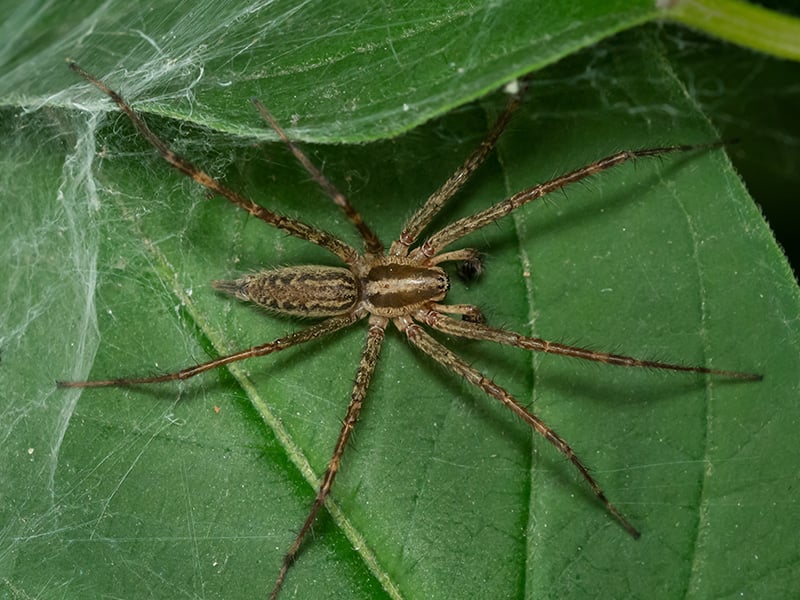
Grass Spiders
Identification: Light brown or gray with two dark stripes near the head and a distinct funnel-shaped web.
Where they're found: These spiders are often seen in lawns, landscaping, and around foundations. You may also find their webs in the following areas:
- Near window wells
- Along steps or porches
- Between bushes or shrubs
Behavior & risks: Grass spiders are fast runners but not aggressive. Their bites are rare and pose little danger. Indoors, their presence may suggest other insects are available as food.
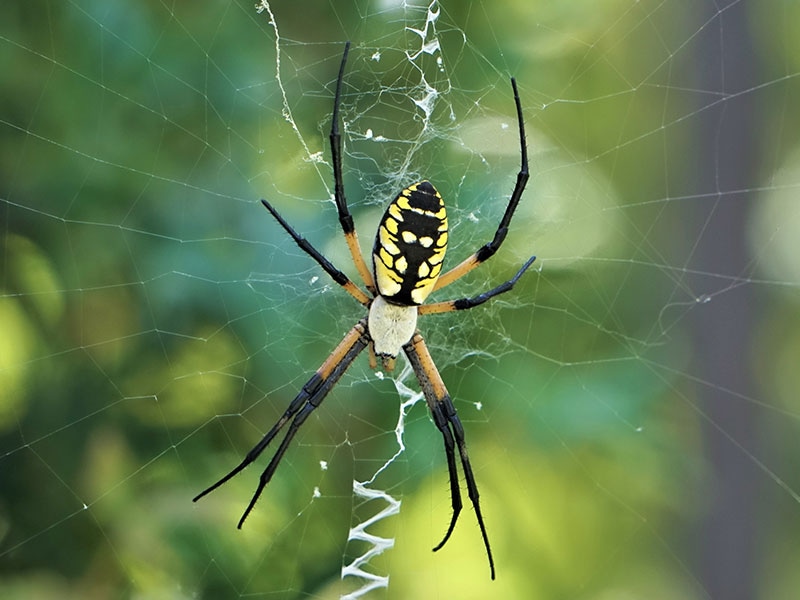
Black And Yellow Garden Spiders
Identification: Large, colorful spiders with bright yellow and black markings on the abdomen and orange-and-black banded legs.
Where they're found: They are common in gardens, flower beds, shrubs, and fences. To catch flying insects, they build large, circular webs, sometimes with a zigzag pattern called a stabilimentum.
Behavior & risks: They're non-aggressive and prefer outdoor life. If disturbed, they might bite, but their venom causes only mild, short-lived irritation.
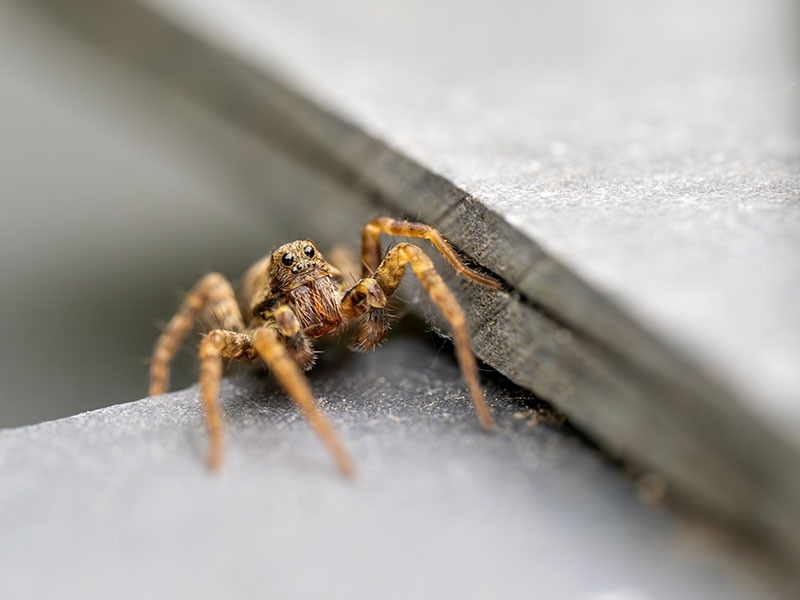
Wolf Spiders
Identification: Wolf spiders are large, fast, and hairy, often mistaken for tarantulas. They range from gray to dark brown with a striped pattern on the back.
Where they're found: You might see them:
- Running across patios or driveways
- Hiding under rocks, mulch, or debris
- Occasionally wandering indoors in search of prey
Behavior & risks: Wolf spiders don't build webs; instead, they hunt at night. They can bite if provoked, causing redness and mild swelling, but they're not dangerous.
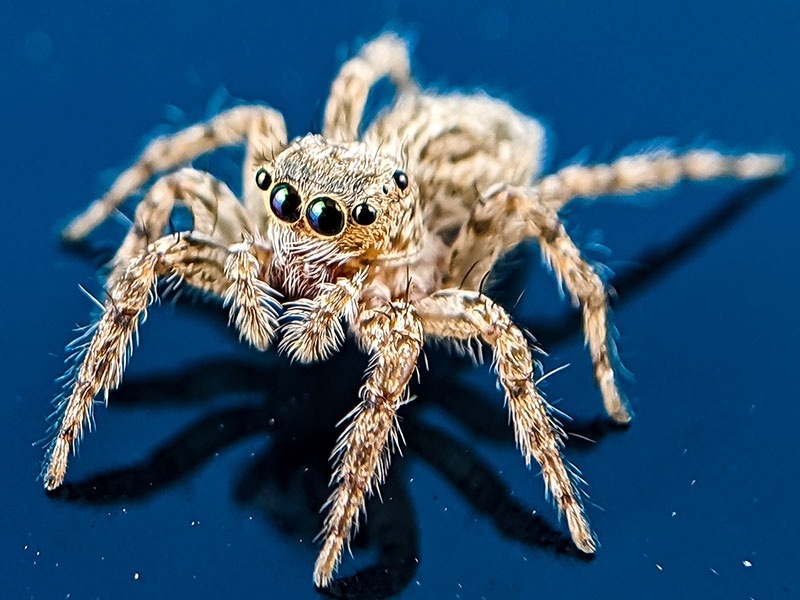
Jumping Spiders
Identification: Small, compact spiders with short legs and large forward-facing eyes that give them excellent vision. They often appear furry and may have iridescent colors.
Where they're found: Common on windowsills, walls, and outdoor furniture, they actively stalk small insects.
Behavior & risks: Harmless to humans and fascinating to watch, they can leap several times their body length to capture prey.
When are spiders most active?
What Attracts Spiders?
Spiders move indoors primarily for food and shelter, not to seek humans. Common attractants include:
- Insect activity (flies, ants, silverfish, or roaches)
- Outdoor lighting that draws prey insects near doors and windows
- Cracks and gaps around windows, siding, and foundations
- Clutter that creates safe hiding spots
- Moisture, especially in bathrooms, basements, and kitchens
Are Spiders Dangerous?
Most spiders in Jacksonville are not dangerous. They help reduce pest populations naturally. However, black widow and brown recluse spiders are exceptions; their venom can cause medically significant reactions. If you can't confidently identify a spider, it's best to avoid handling it and contact a pest professional.
How to Prevent Spiders in Your Home
You can minimize spider activity with a few simple habits:
- Seal gaps and cracks around windows, vents, and door frames.
- Switch to yellow outdoor bulbs that attract fewer insects.
- Vacuum webs and egg sacs as soon as you see them.
- Keep storage areas organized to reduce hiding spots.
- Address insect problems; fewer bugs mean fewer spiders.
- Maintain landscaping by trimming vegetation away from your home's exterior.
Professional Spider Control in Jacksonville, FL
If spiders keep returning or you see signs of venomous species, professional treatment is the best solution.
Lindsey Pest Services offers targeted spider control in Jacksonville and throughout the First Coast. Our highly trained pest control specialists identify the specific species, remove webs and eggs, and treat your home's interior and exterior to reduce spiders and the insects that attract them.
Regular pest treatments allow you to enjoy a clean, comfortable, and spider-free home year-round.
FAQ: Spider Questions
Are brown recluse spiders common in Jacksonville?
They're less common in coastal regions but occasionally appear indoors, especially in attics, garages, and storage areas.
Can spiders infest a home?
Not in the traditional sense; most species don't "infest". However, if food sources (insects) are abundant, multiple spiders may take up residence.
Do spiders bite people while they sleep?
It's unlikely. Spiders usually avoid humans and bite only when trapped or startled.
What should I do if I find a black widow or brown recluse?
Avoid touching it, take a photo for identification, and contact a licensed pest control professional for safe removal.
Get Your Free Pest Control Quote Today!
Complete the form below to get started with your free, no-obligation quote, and a Lindsey Pest representative will contact you shortly.
Same Day Service Available!
